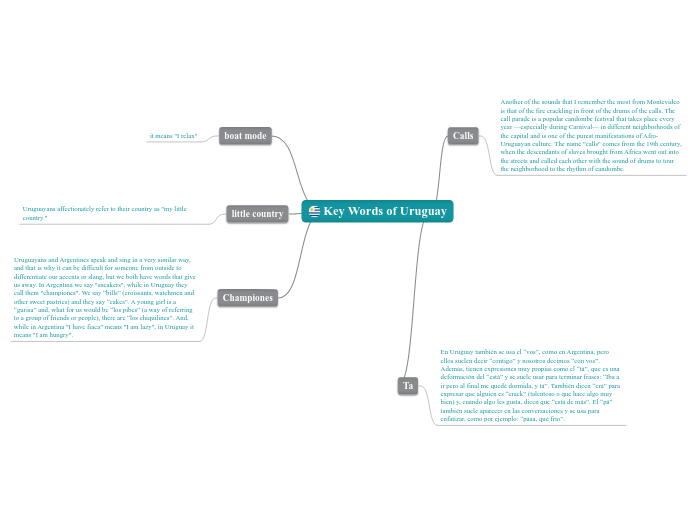по Giuliana Cuevas 4 лет назад
485
mapa mental de Uruguay
In Uruguay, the local dialect and expressions are distinct from those in Argentina, despite some similarities. Unique slang includes terms such as 'tá' used to conclude sentences, '

по Giuliana Cuevas 4 лет назад
485

Больше похоже на это